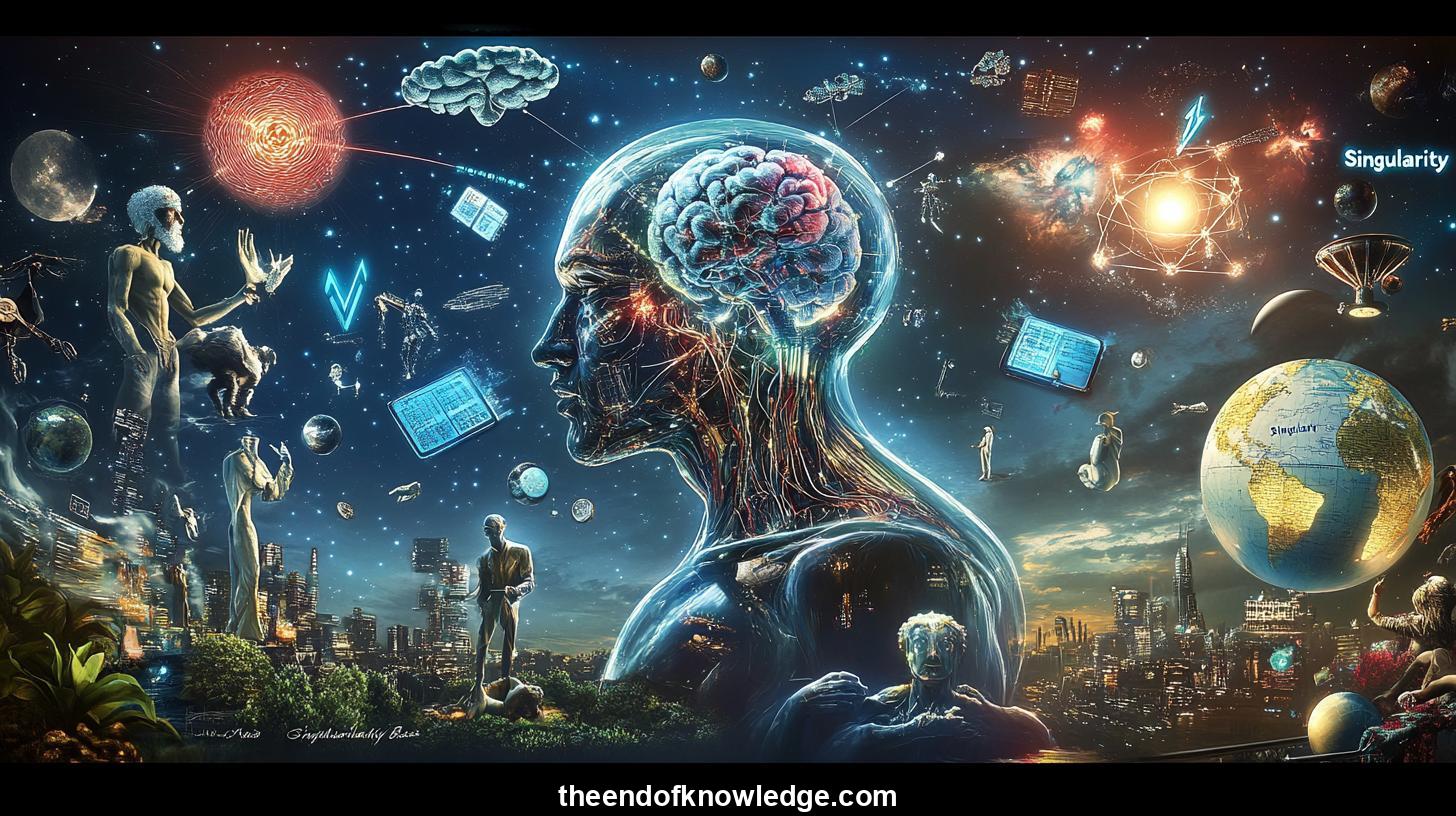 >
>
Concept Graph, Resume & KeyIdeas using DeepSeek R1 :
Resume:
discusses the intersection of transhumanism, artificial intelligence, and ethical responsibility, exploring how technological advancements are reshaping human identity and society. It delves into the philosophical underpinnings of transhumanism, emphasizing the need for ethical frameworks to guide the development and use of emerging technologies. The conversation highlights the importance of balancing technological progress with human values, ensuring that innovations serve the greater good rather than perpetuating inequality or harm. also examines the historical and cultural contexts of technological evolution, drawing parallels with religious and philosophical traditions to illustrate the profound implications of creating advanced artificial intelligence. Ultimately, it calls for a collective effort to harness technology responsibly, fostering a future where human dignity and well-being remain central to scientific and societal progress.30 Key Ideas:
1.- Transhumanism explores the enhancement of human capabilities through technology, raising ethical and philosophical questions.
2.- Artificial intelligence challenges traditional notions of human identity and responsibility.
3.- The development of advanced AI requires ethical frameworks to prevent misuse and ensure societal benefit.
4.- Historical philosophical traditions, such as those of Plato and Aristotle, provide insights into the ethical use of technology.
5.- The concept of the "noosphere" suggests a collective consciousness that could emerge from human-AI collaboration.
6.- Technological advancements must align with human values to avoid exacerbating social inequalities.
7.- The integration of technology into daily life raises concerns about privacy, autonomy, and psychological well-being.
8.- Ethical responsibility in AI development involves balancing innovation with the need to protect human dignity.
9.- Religious and philosophical narratives, such as the story of Prometheus, offer metaphors for understanding technological ambition.
10.- The ethical implications of AI extend to issues of accountability, transparency, and fairness in decision-making systems.
11.- Human consciousness and creativity are unique aspects that AI systems cannot fully replicate.
12.- Education and critical thinking are essential for preparing future generations to engage with advanced technologies.
13.- The ethical use of technology requires a global consensus and collaborative effort.
14.- Technological progress must address the needs of marginalized communities to ensure equitable access.
15.- The concept of "singularity" in AI refers to a hypothetical future where machines surpass human intelligence.
16.- Ethical debates surrounding AI include questions about its potential to enhance or diminish human freedom.
17.- Historical examples of technological misuse highlight the importance of learning from past errors.
18.- The development of AI raises questions about the nature of consciousness and intelligence.
19.- Ethical AI systems must prioritize transparency, explainability, and accountability.
20.- The integration of humanistic values into technological development ensures a more compassionate and equitable future.
21.- Technological advancements must be guided by principles of justice and fairness.
22.- The ethical use of AI requires addressing issues of bias, discrimination, and algorithmic fairness.
23.- Human-AI collaboration could lead to unprecedented scientific and societal advancements.
24.- The ethical implications of AI extend to its potential impact on employment, economy, and social structures.
25.- Education systems must evolve to prepare individuals for a world increasingly shaped by technology.
26.- The ethical development of AI involves balancing innovation with the need to protect vulnerable populations.
27.- Historical philosophical traditions offer valuable insights into the ethical challenges posed by AI.
28.- The concept of "superintelligence" raises questions about human control and accountability.
29.- Ethical AI systems must prioritize human well-being and dignity in their design and application.
30.- The responsible development of AI requires a global dialogue and collective action to address ethical concerns.
Interviews by Plácido Doménech Espí & Guests - Knowledge Vault built byDavid Vivancos 2025